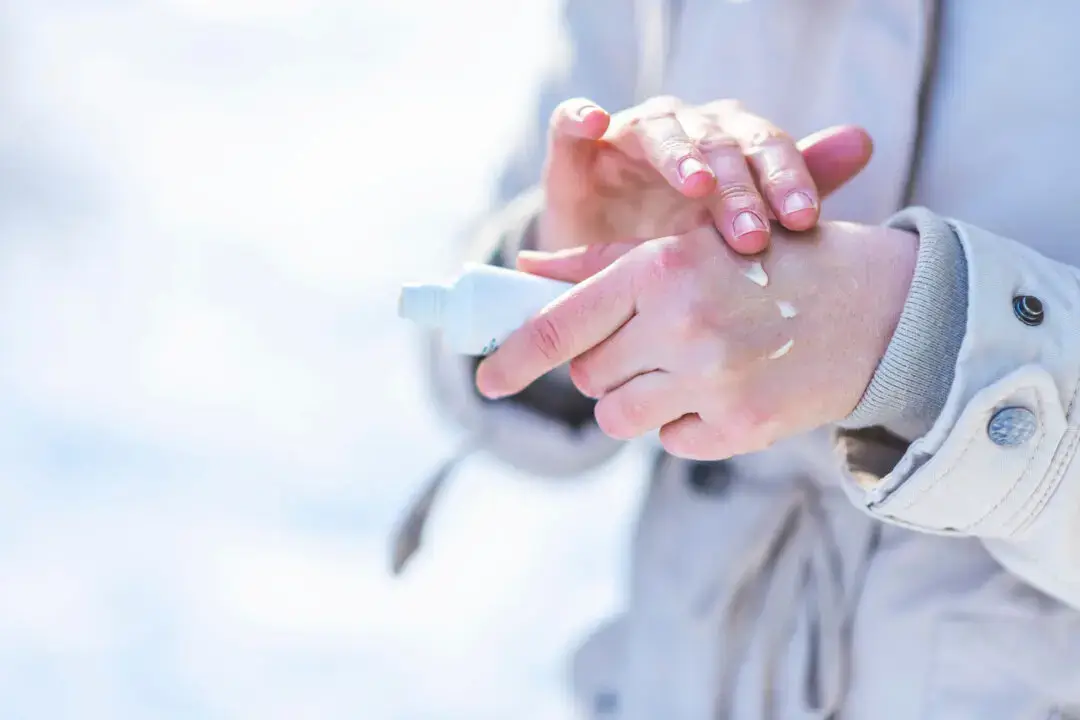
Top 5 Tips For Soothing Eczema In Winter
An expert has some tips on how to treat eczema this winter.
In the winter, the cold, dry air and indoor heating can wreak havoc on sensitive skin, especially for those with hand or facial eczema.
Turning up the thermostat keeps us warm in winter, but it can make eczema worse. It can trigger flare-ups of itchy, red, and inflamed patches.
The problem is how we respond to the change in season.
“We close the windows and doors by October, and we don’t open them again until April or May,” says Lisa Beck, professor of dermatology and eczema specialist at the University of Rochester Medical Centre. “We build homes that are very tight for energy purposes. But that means very tight for indoor allergens as well.”
This includes any feathered or furred pets, microscopic dust mites (found in high quantities in the pads of wall-to-wall carpets, pillows, and mattresses), and some rodents that can cause an inflammatory response in the skin.
Here, Ms. Beck shares a few tips for eczema patients looking to keep the winter woes at bay.
- Bathe Less
- Okay, easier said than done, we know. But the more we bathe, especially with hot water and harsh soaps, the more we strip away the skin’s natural oils, leading to more dryness. Keep bathing to a maximum of once a day if you can. Dare we say try every other day?
- Use soaps that are lanolin-free, unperfumed, and have a neutral pH.
- Put on Moisturizer Immediately After Bathing
- Putting on your moisturizing cream (not lotion, spray, or gel) when you’re still wet after a shower will help lock in the moisture.
- Moisturizers with pumps are best because they prevent bacterial contamination that sometimes forms in tubs.
- Be sure to avoid moisturizers with scents.
- Humidify Your Heat if You Can (but Beware of Mold)
- If you have a humidifier in your home, use it. Humidifiers release water vapour into the air, increasing the overall humidity level. This added moisture helps prevent your skin from drying out. Just don’t overdo the level of humidity to the point where mold starts to form in your house.
- If a humidifier isn’t an option, keeping the heat at lower temperatures, especially at night, is a good place to start. Continuous air blowing can also dry out the skin.
- Remove Fabric Softeners from Washers & Dryers
- Keep your wash free of liquid softeners. Avoid wool balls or fabric softener sheets in the dryer.
- Cook with Oils That Contain Essential Fatty Acids
- Some cooking oils (like olive oil) are rich in essential fatty acids, important for maintaining a protective skin barrier, and will reduce dryness.
Adding these treatments to your routine should make your skin feel better all winter long.
* * *
Must Have: We recommend this eczema cream for its proven effectiveness in providing relief and promoting healthier, more comfortable skin.
* * *
NEXT UP!
Can A Dental Infection Cause A Massive Heart Attack?
For literally hundreds of years now, the idea that a dental infection could seed, initiate, and promote virtually all chronic degenerative diseases has been hotly debated in the medical and dental communities, often with much more passion and hyperbole than with science.
This “debate” continues today, and nothing encapsulates this focal infection link between the mouth and the body better than the root canal-treated tooth. And while the root canal-treated tooth is certainly not the only significant source of dental infection and toxicity, it is easily the most devastating one—as you will soon see.
Conventional Dentistry Refuses to Inform Patients about the Risk of a Dental Infection from a Root Canal Procedure
The “success” of a root canal-treated tooth for a given individual depends on the goal of the root canal procedure. If the goal of a root canal procedure is to retain a pain-free natural tooth for both esthetic and chewing function, then the root canal procedure is frequently “successful.”
* * *
READ MORE: The Midnight Hour: Astrology Overview December 18th – 24th, 2023
Awareness! 7 Reasons To Abandon Your Comfort Zone & Why You’ll Never Regret It
Telegram: Stay connected and get the latest updates by following us on Telegram!
We’d love to hear from you! If you have a comment about this article or if you have a tip for a future Collective Spark Story please let us know below in the comment section.
